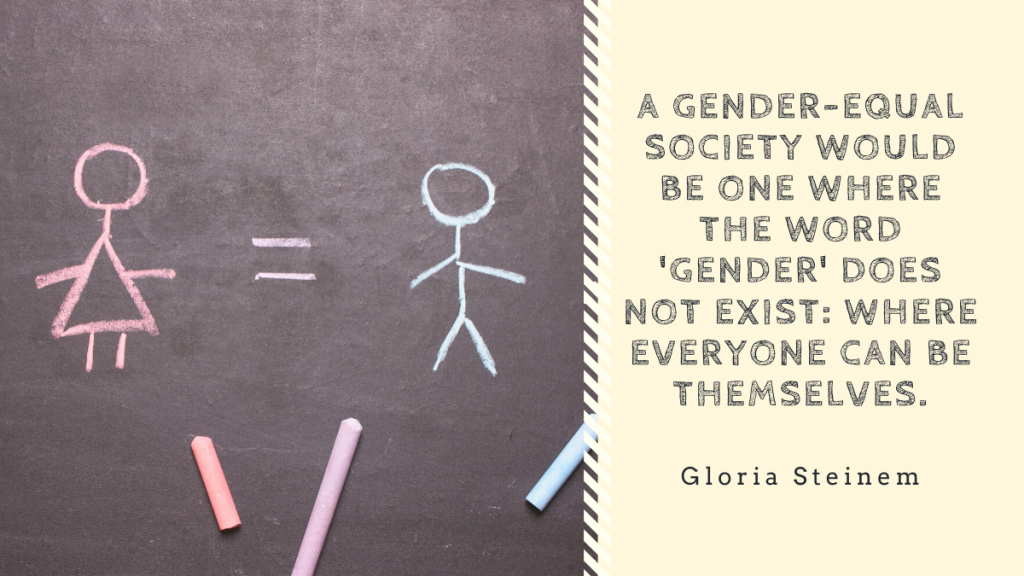Men's Health Month
Jun 15, 2020
5207 Views
I’m a woman, and a feminist. So why am I talking about men’s health during these times of patriarchy? Shouldn’t I be fighting it? I am. With this blog post. Read on.
According to Harvard Health Publishing, the average man pays less attention to his health than the average woman. What I have come to believe from over a decade of genetic counseling, is that the average man actually does pay attention to his health. He may, however, feel more compelled to not show “weakness” (such as being unwell) because of sociocultural conditioning that may effectively compel him into projecting “strength” (as physical and/or emotional wellbeing) even when he may not feel very well. As a result, and as Harvard Health Publishing continues, men are more likely than women to:
- Drink alcohol and use tobacco
- Make risky choices
- Not see a doctor for regular checkups
June is Men’s Health Month, and its purpose is to increase awareness of preventable health problems, to encourage early detection, and to facilitate effective treatment/management of disease among men. Men’s Health Month also gives doctors, the media, and well, men, the opportunity to seek regular and timely medical advice and early treatment for illness and injury. And while men can be at risk for illnesses that affect women too – e.g., heart disease, cancer, diabetes – I will not be discussing those today. What I will be talking about here today, is an important health issue men are at an alarmingly increased risk of – it’s one related to mental health. Stay with me, read on.
Remember how I had referred to fighting patriarchy with this blog post? Here goes. Fighting patriarchy is NOT the same as fighting men. And while we’re more than familiar with how patriarchy victimizes women – witch hunts, sati, dowry deaths, acid attacks, rape, sexual harassment (remember the #MeToo movement?), wage gap, abortion “laws”, etc. – much remains unsaid about the systemic discrimination, harassment, violence, dehumanization and invalidation of the trans community by a system that is driven by biological “male-ness” v/s “female-ness”. Gender fluid or nonconforming individuals are also, sadly, at the receiving end of unacceptable invalidation by a system blinded by biology and cult-ified by conditioning.

But, let’s get back to men. I know! I’m a feminist, but still. Let’s talk about men with compassion. Men, who, dare I say, are the unaware victims of patriarchy. And this is extremely dangerous. According to Men’s Health Forum (UK):
- 34% of working-age men would be embarrassed or ashamed to take time off work for mental health issues such as anxiety or depression
- Men are less likely to access psychological therapies than women
- Men are three times more likely to die from suicide than women. Three times.
This is an unexpected price men pay for a system that, on the surface, benefits them but, in the long-run, creates deep-seated issues that are, clearly, barriers to physical as well as psychological well being.
Men are discouraged from showing emotion other than aggression/anger, because they MUST NOT “cry like a girl”, because “boys don’t cry” and, apparently, trans- or gender fluid/non-conforming humans don’t exist. (Sarcasm, anyone? No? OK!). Consequently, without a culturally-approved outlet for stifled feelings, generations of men have turned to unhealthy coping mechanisms such as alcohol abuse, violence, and suicide. Sushant Singh Rajput’s untimely death is testimony to not just the stigma surrounding mental illness, but also to a patriarchal culture that sets unrealistic and unattainable “standards” of “strength” for men. It’s as though patriarchy is telling men that they’re not people, and must not show vulnerability. As a result, men are disadvantaged with respect to developing adequate and healthy coping strategies or seeking help when needed. I find it most interesting – and terribly tragic- that patriarchy does a grave disservice to men and women. It dehumanizes women (through sexual objectification) and men (through glorified idealization), when the truth is that both men and women are but different genders of the exact same species with an intellect, emotions, a psyche, and slightly different bodies with respect to genitalia and secondary sexual characteristics such as developed mammary glands in women, and facial hair in men or for those of us women with PCOS. It’s common, OK! (1 in 8 women, to be exact)
Research also reveals that patriarchal conditioning creates in men a deeply-ingrained fear of being seen as “weak”. This fear can be so subconsciously internalized that men may resort to drastic overcompensation in the face of a perceived threat to their “strong” patriarchy-prescribed image. Further, men who don’t see themselves as “masculine” (according to rigid, patriarchy-based, societal standards for a binary gender system) are more likely to harass and act aggressively towards women (and gay men). There is no denying that patriarchy is designed to benefit men, but some consequences can be deadly for men too. According to Coleman [1] men who identified with rigid gender-based beliefs – men must be the sole providers, be invulnerable, or be self-sufficient — were more likely to experience depression and exhibit suicide ideation. It’s almost as if “violating” the code of idealized masculinity can be a source of so much distress for men that it has the potential to seriously strain their overall health. Coleman’s study concluded that idealizing “high traditional masculinity” is a “risk factor,” especially for men who aren’t able to fulfill that ideal. Here’s my conclusion: an “ideal” is just that – an ideal. It’s not realistic.
To conclude my patriarchy-smashing piece, patriarchy is unfair to both genders in different ways. This ‘girls versus boys’ thing is immature and is life-threatening to both genders, and to anyone who doesn’t subscribe to gender as a binary social construct. The truth is that we’re all humans, and we’re all in this together. As people. Luckily, there is a movement dedicated to dismantling the gender-based sociopolitical system of patriarchy, and it’s called feminism. According to the APA (American Psychological Association), “traditional masculinity—marked by stoicism, competitiveness, dominance and aggression—is, on the whole, harmful. Men socialized in this way are less likely to engage in healthy behaviors.” But there is encouraging data demonstrating that gender equality may dampen rates of male suicide, because women’s empowerment may protect men from economic shocks and may allow them to experience vulnerability in a healthy way. And finally, there is actual evidence [2] that societies with higher levels of gender inequality have the highest rates of male suicide and that the gender-gap in suicide (you never imagined reading that phrase, did you?) is smaller in nations with higher gender equality. As a scientist, I believe in scientific evidence, and I encourage you to do so too. Patriarchy kills; and perhaps it’s time we smash it. Together. As one.
About the Author

Pooja Ramchandran is a pioneer in the field of genetic counseling in India and VP Genetic Counseling at Mapmygenome. She has been practicing clinical genetic counseling in India since graduating from Johns Hopkins University in 2008. She is a much sought-after expert in a niche profession and, being the first genetic counselor in the country with a formal degree in genetic counseling, she is committed to establishing the genetic counseling profession in India. When she is not offering her expertise as a genetic counselor, Pooja is a stand-up comedian.
Works Cited
- Daniel Coleman (2015) Traditional Masculinity as a Risk Factor for Suicidal Ideation: Cross-Sectional and Prospective Evidence from a Study of Young Adults, Archives of Suicide Research, 19:3, 366-384, DOI: 10.1080/13811118.2014.957453
- Lahn, Å (2015, October 17) Gender equality gives men better lives. Retrieved June 15, 2020, from https://partner.sciencenorway.no/forskningno-gender-and-society-gender-equality/gender-equality-gives-men-better-lives/1424075
